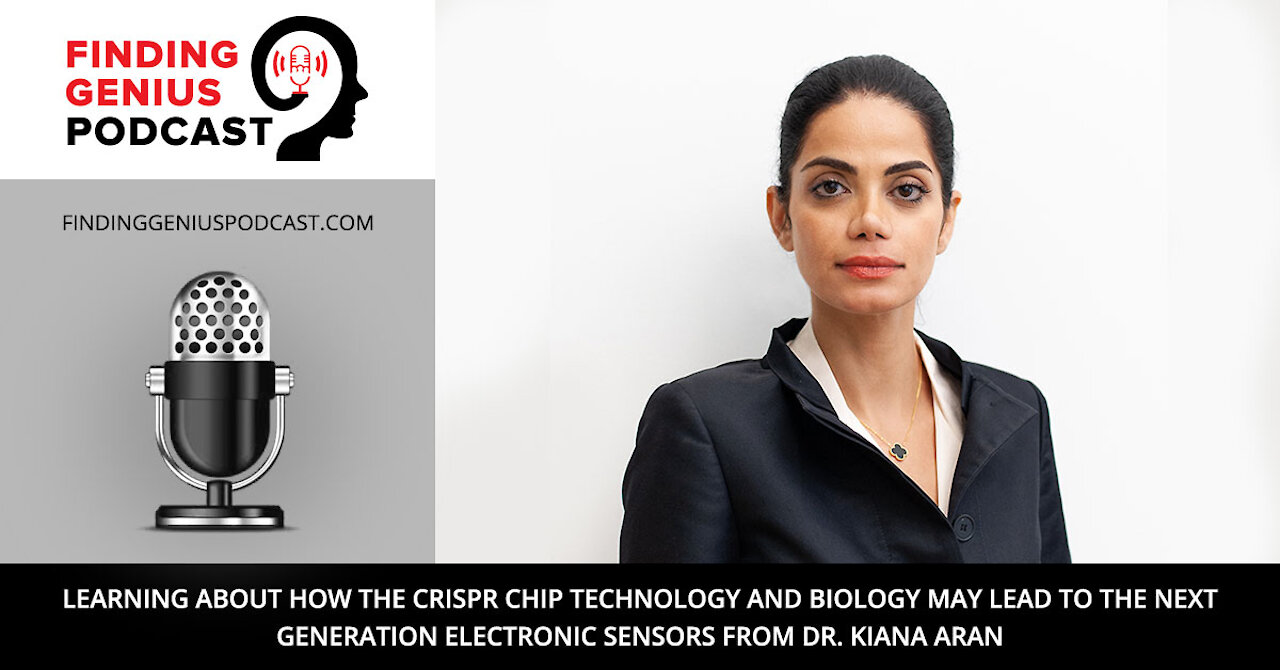Premium Only Content

How the CRISPR Chip Technology and Biology May Lead to the Next Generation Electronic Sensors
Kiana Aran, Ph.D. is an associate professor and director of the Aran Lab at Keck Institute and is also the Chief Scientific Officer at Cardea Bio. She is an electrical engineer with a driving interest in biology that has led her to combining these two seemingly unconnected fields. Her research has led to the discovery that amplification is not required for targeted DNA and gene detection.
Click on play to learn:
How functionalizing materials can be used in biosensing technologies and in lab-on-a-chip (LOC) systems.
How linking biology directly with electronics molecular control signals can be accessed and studied.
How the first DNA search engine is possible using a CRISPR-SNP-chip and graphene.
Dr. Aran is interested in the integration electrical, mechanical, chemical, and bioengineering to develop new device solutions for use in clinical research. She thinks of the CRISPR chip as a microscopic robot that can be used as a genome typing tool, a kind of DNA search engine. This tool provides the ability to search through a complete genome in record time, among other things.
Currently, the sensitivity of the platform is being evaluated and improved to allow for more types of research. Work is currently being conducted to assess the accuracy and efficiency of CRISPR itself. Research continues on combining the power of CRISPR in its search capabilities and the power of biology as a technology to facilitate research and new discoveries.
To learn more visit: aranlab.org and cardeabio.com
Episode also available on Apple Podcasts: apple.co/30PvU9C
-
 32:42
32:42
FGP
16 days agoVirtual Paralegal Services For The Modern Client: A Conversation With Selena Sing
221 -
 1:49
1:49
High Ticket Affiliate Marketer 2
4 years agoHow to Optimize Your Lead Generation
13 -
 LIVE
LIVE
The Robert Scott Bell Show
16 minutes agoVaccine Lawsuits & Legal Fights, Autism–ADHD Link to Tylenol, MAHA Action, Caitlin Sinclair, Fat Jabs for Pets - The RSB Show 8-19-25
49 watching -
 2:57:22
2:57:22
Right Side Broadcasting Network
6 hours agoLIVE REPLAY: White House Press Secretary Karoline Leavitt Holds a Press Briefing - 8/19/25
60.3K38 -
 1:03:48
1:03:48
Timcast
3 hours agoGavin Newsom SURGES In Polls, COPIES Trump's Style
122K92 -
 4:37
4:37
Michael Heaver
9 hours agoBusted France Faces UPRISING
9.48K3 -
 10:45
10:45
Dr. Nick Zyrowski
1 day agoDoctors Got It Wrong! This Causes of Obesity - NOT Sugar
16.7K11 -
 1:57:57
1:57:57
The Charlie Kirk Show
3 hours agoSummit Aftermath + America's Energy Revolution + Where Russiagate Will Lead | Wright, Solomon
56.3K15 -
 2:00:15
2:00:15
Steven Crowder
6 hours agoTrump's Huge Meeting Shocks the World & the Media is Dumbfounded
293K233 -
 LIVE
LIVE
Viss
3 hours ago🔴LIVE - How to Consistently Win in PUBG!
85 watching